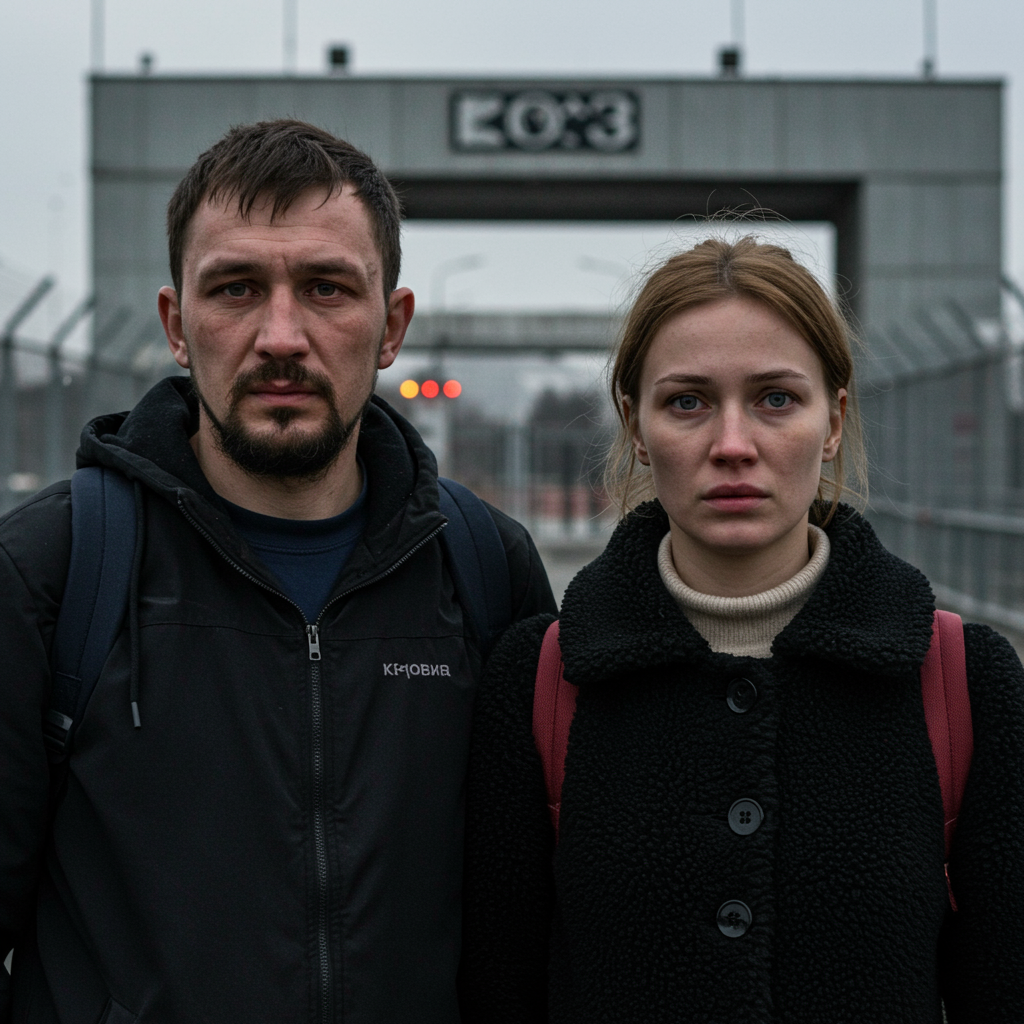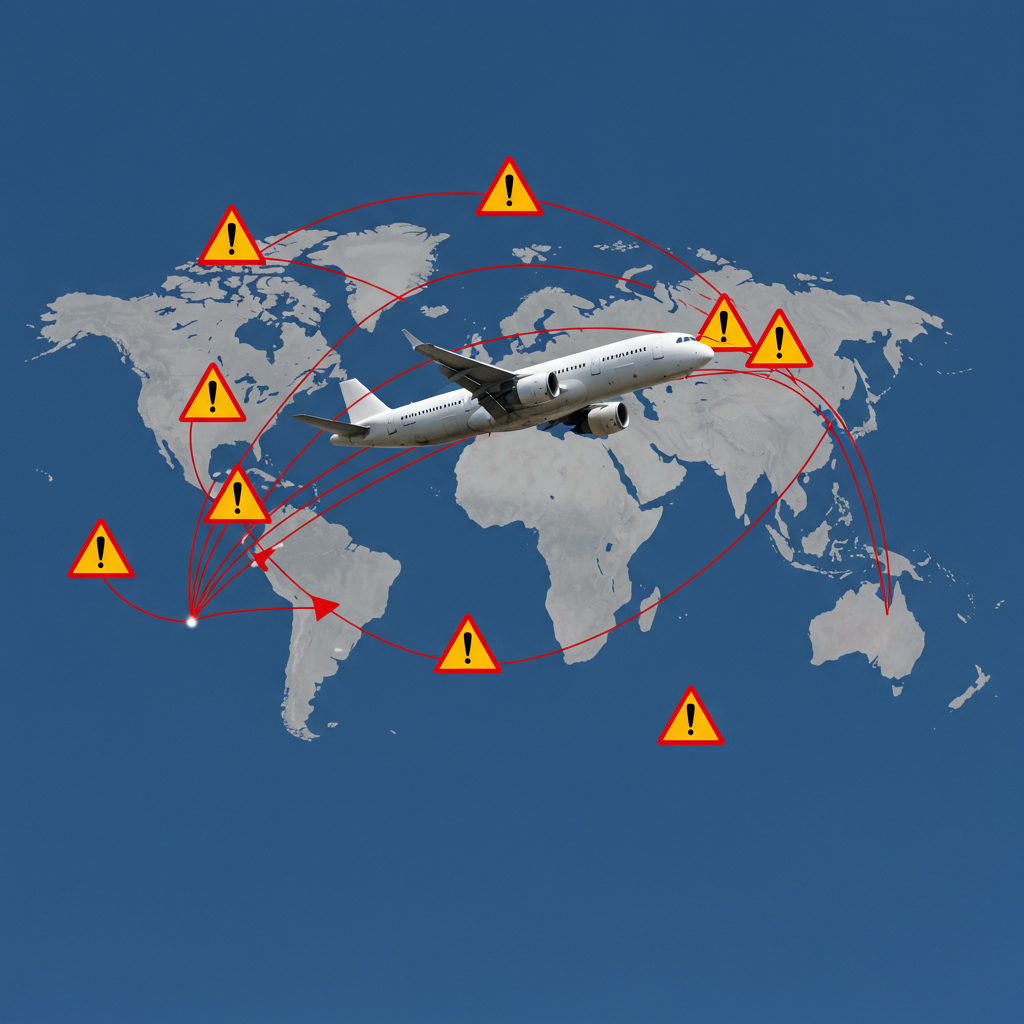Their story is one of quiet defiance that escalated into a dramatic flight for freedom. Sergei and Tatyana Voronkov, a Russian couple living in occupied Ukraine, made the perilous decision to become informants for Kyiv. Their actions risked their lives, shattered their family, and ultimately forced them into a daring escape across multiple borders.
Leaving Russia Behind
Sergei, 55, and Tatyana, 52, both Russian citizens, had long been vocal critics of Vladimir Putin and disillusioned with modern Russia. Their discontent intensified following Moscow’s annexation of Crimea in 2014. Facing hostility and being explicitly told they could leave Russia by friends and acquaintances for their anti-Kremlin views, the couple decided to do just that. Tatyana, originally from Ukraine’s Donbas region, had even lost her job due to her political stance.
After visiting Ukraine several times since 2016, they made the permanent move in 2019, seeking refuge and a quieter life. They settled in the small village of Novolyubymivka in the southeastern Zaporizhzhia region, a community of just about 300 people. Here, they built a new life, raising livestock, caring for four dogs, and Sergei working as a land surveyor, drawing on skills from his time in the Soviet army.
The Invasion and a Decision to Act
Their peaceful existence was violently disrupted on February 24, 2022, when Russia launched its full-scale invasion. Within days, by February 26, their village was under Russian occupation. Finding themselves living under the control of the very government they opposed, and witnessing Russian military convoys pass their home, Tatyana felt compelled to act. Recalling how they were once told to leave Russia if they didn’t like it, they knew they couldn’t simply flee again.
Tatyana reached out to an acquaintance in Kyiv with connections to Ukraine’s security services. This contact provided a link to a special, secure Telegram chatbot used for gathering intelligence in occupied territories. Through this channel, the couple were tasked with providing vital information on Russian military presence in their area.
Becoming Ukraine’s Eyes and Ears
Operating under constant risk, Sergei and Tatyana began collecting detailed intelligence. They reported the location and specifics of Russian military hardware, particularly focusing on:
Electronic warfare systems
Missile systems
- Tanks
- https://www.bbc.com/news/articles/clyqq18evyko
- https://www.yahoo.com/news/didnt-see-treason-russian-couple-230425642.html
- https://bbcrussian.substack.com/p/how-one-russian-couple-helped-ukrainian-war-effort
- https://au.news.yahoo.com/johnson-says-house-track-trump-214421719.html
This information was crucial for the Ukrainian army to target Russian troops in the vicinity using drones and artillery.
The Voronkovs firmly believed their actions were not treason against Russia, but rather “a fight against evil” against an aggressor state. They insist that the information they provided did not result in strikes on civilians or civilian infrastructure, citing an instance where the Ukrainian military reportedly chose not to strike a military target to avoid hitting nearby homes.
For about two months, Sergei would gather precise coordinates, and Tatyana would transmit them via her phone whenever internet access was available, immediately deleting all traces afterwards. This critical contact with their handler lasted until internet access in their village was cut in late April 2022.
Living Under Suspicion and Sergei’s Arrest
Even after direct contact ceased, the couple remained in occupied territory, feeling a sense of belonging and a desire to continue helping Ukraine if possible. However, as Russian citizens living under Russian control in Ukraine, they were immediately under suspicion. Unmarked armed men began searching properties in the village, visiting the Voronkovs’ home multiple times over the following two years.
Their precarious situation came to a head in April 2024 when Sergei was detained by armed men while buying gardening seeds in the nearby town of Tokmak. He was taken to an abandoned house and subjected to a harrowing interrogation experience. For several days, he was held in a cold basement pit, roughly two meters wide and three meters deep, forced to sleep in a squatting position with little food and no ability to wash.
During the interrogation, a bag was kept over his head. He was questioned about passing information to Ukrainians, subjected to a lie detector test, and threatened with violence, though he states he was not physically beaten. After initially denying involvement, Sergei confessed on the fourth day. He explained his confession stemmed from the fear that under prolonged duress and potential violence, he might accidentally implicate others.
A Desperate Search and Unexpected Release
While Sergei was held captive, Tatyana launched a desperate search. She traveled throughout the area, phoning hospitals and morgues. Their son, who remained near Moscow, also contacted various authorities in Russia seeking information.
About ten days after Sergei’s arrest, security forces searched the Voronkovs’ home, finding and seizing $4,400 they had hidden in their garden. Tatyana was eventually informed, roughly two weeks after the arrest (around May 7), that her husband was in the custody of Russia’s security services, the FSB, held in a basement in Tokmak.
Sergei remained in the basement pit until May 26. On that day, FSB officers filmed his confession. Surprisingly, just two days later, on May 28, after 37 days in captivity, Sergei was released. Most of his documents, including his passport, were confiscated. To this day, the couple does not fully understand the reason for his unexpected release, though experts note a significant lack of transparency in investigative and judicial processes in Russian-occupied areas, where detentions and releases often lack clear explanations. Speculation exists that authorities may have lacked sufficient hard evidence beyond his forced confession to hold him long-term.
The Perilous Journey to Freedom
The Voronkovs quickly realized they would not be left alone after Sergei’s release. They believed they were under constant surveillance, with cars frequently driving past their home and strangers asking intrusive questions. Believing their safety was compromised and they would never be free from scrutiny, they began planning their escape.
Consulting with human rights activists in Europe, they decided their best option was to reach Lithuania, a member of the European Union and a strong ally of Ukraine. However, this presented a major hurdle: to travel internationally, Sergei needed a new passport, which required them to return to Russia first.
Their neighbours in Novolyubymivka provided crucial assistance, buying their livestock and farm equipment. The couple also managed to find new homes for their beloved dogs, a significant relief for Sergei.
The escape began with a drive towards the Russian border. To navigate the numerous checkpoints without raising suspicion, they concocted a cover story: they were traveling to the sea for Tatyana’s asthma, bringing a straw hat and a rubber ring as props to make it believable. They even spent a night in the Russian-controlled port city of Berdyansk before heading towards Luhansk near the border.
Crossing into Russia proved difficult as Sergei only had a photocopy of his confiscated passport. They were initially denied entry but eventually allowed through after he obtained a certificate proving he had applied for a new document.
Once in Russia, obtaining the full passport was delayed. In September 2022, they attempted to leave Russia via Belarus without complete documentation but were stopped. A database check revealed Sergei’s prior arrest, prompting police to contact the FSB. Astonishingly, local FSB officers released them again, simply telling Sergei to get a new passport.
Undeterred, Sergei acquired a fake passport with his name via Telegram. Using this forged document, they successfully traveled by bus to Belarus and then crossed the border into Lithuania.
New Life, Lasting Scars
Their journey wasn’t over upon reaching Lithuania. Sergei was immediately detained by Lithuanian border guards for using a fake passport. He was subsequently found guilty by a Lithuanian court but sentenced to a period he had already served in pre-trial detention, which he described as significantly more humane than his previous captivity, feeling like a “guest house” from which he couldn’t leave.
Today, Sergei and Tatyana are living in a shelter for asylum seekers in Lithuania, hoping to begin a new life and settle permanently in the EU. To support their application, their former handler in Kyiv requested a letter of thanks from the Ukrainian army, a copy of which the BBC has seen, acknowledging their invaluable assistance in supporting the war effort.
While they achieved their freedom, their actions came at a deep personal cost. Their decision has caused profound rifts within their family. Their son, who remains in Russia, stopped speaking to them after learning what they had done. Sergei’s 87-year-old mother, who also lives in Russia and supports the war and President Putin, has also strained her relationship with him, arguing and at times ceasing communication.
Despite these painful fractures and the traumatic experiences they endured, Sergei and Tatyana are resolute. They are adamant they will never return to Russia. “Only if it starts showing some humanity,” Sergei states, adding, “For now, I see nothing human there.” Their story highlights the courage of individuals who chose defiance over complicity, paying a heavy price for their convictions in the fight they perceived as one against evil.




